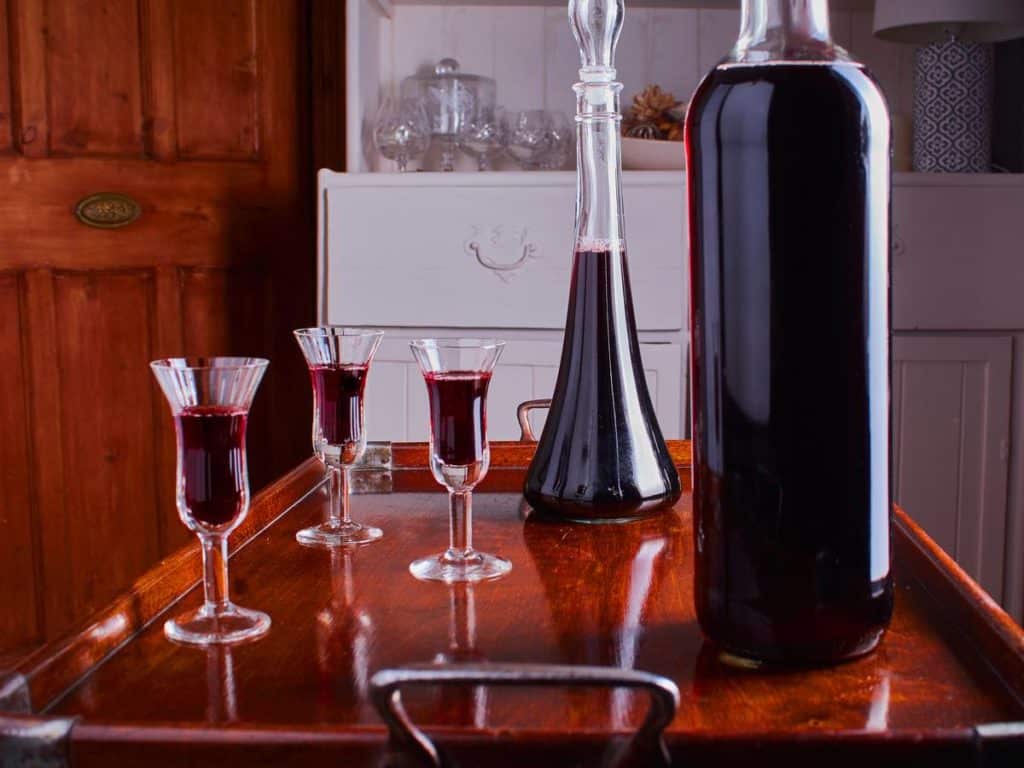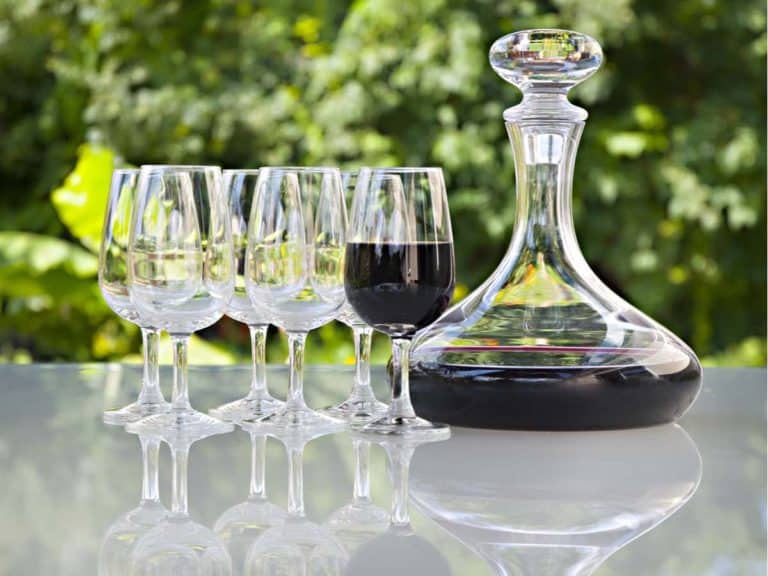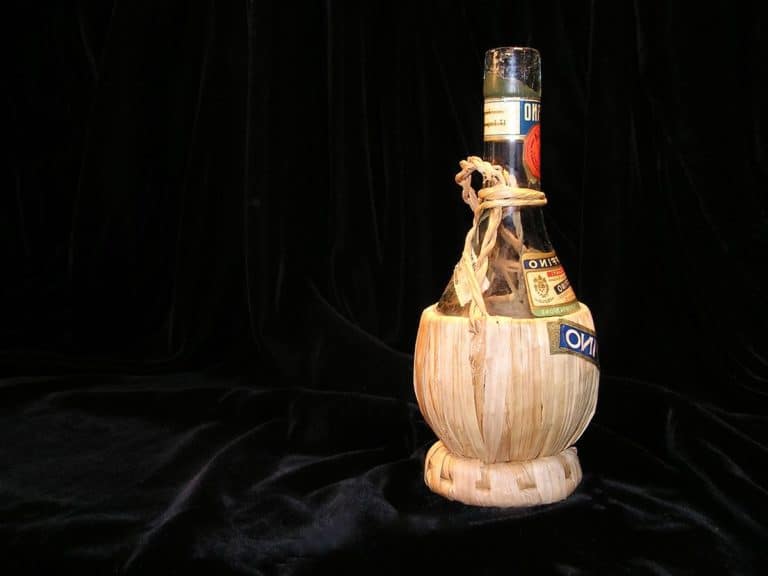How Long Does Port Last in a Decanter?
Port is one of the fortified wines that boast a long shelf life. If left unopened and stored properly, it can last for decades and has an indefinite lifespan. Unfortunately, its lifespan is cut short after opening.
Port in a decanter can last between two weeks to three months. The amount of time it can last in a decanter depends on several factors such as decanter type, amount of Port in the decanter, prevailing environmental conditions, and how often you open the decanter.
This article will offer a detailed look at how long Port can last in a decanter. Keep reading to learn more about the factors that affect its durability in a decanter and how you can tell if your favorite decanted Port has gone bad.

Factors That Determine How Long Port Lasts in a Decanter
Port remains safe in a decanter for a considerably short period, between two weeks to three months. However, how long it lasts in a decanter depends on a few factors, some of which we’ll take a look at below.
Decanter Type
There are different types of decanters in the market that come in varying qualities, sizes, and designs. Some are more effective than others when it comes to storing your Port. For example, those with airtight seals keep decanted Port longer than those with loose seals.
Very little air will leak in and out of the decanter when the seal is tight. Like most table wines, Port undergoes oxidation when exposed to air which affects its flavor.
Lead crystal decanters are among the most popular types of decanter, but it’s best to avoid using them because they’re likely to contaminate your favorite Port with lead, thus lowering its quality.
Where You Keep the Decanter
When choosing an ideal place to keep your decanter, bear in mind the surrounding factors that are likely to lower the quality of your Port; these include sunlight, temperature, and humidity.
In this case, it’s advisable to choose a cool and dry place, away from direct sunlight. If the decanter has to be outside the house, be sure to protect it against the wind, humidity, and extreme temperatures.
How Often You Open Your Decanter
Every time you open the decanter, some air circulates in and out of it. So, the more you open your decanter, the more you expose your Port to oxygen triggering oxidation. The higher the oxidation, the faster the rate of quality deterioration.
So, for your Port to last longer, open the decanter only when necessary. Also, remember that every time you pour some into a glass from the decanter, air will come in to replace the amount of Port poured. This air triggers the Port to go bad by reacting with alcohol compounds.
Amount of Port in the Decanter
The amount of Port in the decanter directly relates to the amount of air the decanter can accommodate. The more Port you have in the decanter, the less air the decanter can hold, and the longer the Port will last.
Conversely, the less Port there is in the decanter, the larger the volume of air it can accommodate, and the higher the rate at which your Port will go bad. Therefore, you need to have as much Port in the decanter as possible to keep the air at bay.
Does Port in a Decanter Go Bad?
Port in a decanter can go bad if not properly stored or is exposed to harsh environmental conditions. In this case, your favorite Port goes from rich, fruity flavors to some nutty notes that aren’t pleasing to the taste buds.
Factors That Make Decanted Port Go Bad
Some of the primary factors that make decanted Port stale include exposure to the following:
Air
Air is one of the enemies of decanted Port; it affects the rate at which Port’s quality deteriorates.
Your Port may get in contact with air during serving or from a leaking seal. After pouring Port into a glass, an equal amount of air gets into the decanter to replace the poured out amount. Once air gets into the decanter, it reacts with essential alcohol compounds, affecting the taste of the Port.

Also, airspaces created in the decanter allow the dissipation of flavorful alcohol molecules into the space left above the liquid. Molecules then escape into the air once the decanter is opened, leaving the remaining Port flat.
You can avoid exposure to air by using decanters with airtight seals or perfectly sized decanters to hold Port enough for only a few servings. The latter calls for regular refills once the decanters are emptied.
Direct Sunlight
Sunlight can turn your sweet Port into nasty swill through a phenomenon referred to as a “light strike.”
A light strike occurs when light rays, particularly UV rays, get into contact with your Port. The UV light excites vitamins B2 and B5 in wine and causes them to react with amino acids to produce an odorous compound of sulfur.
Direct sunlight also raises the temperature of the Port, thereby increasing its evaporation rate. Through evaporation, your Port loses much of its rich flavor and aroma.
Typically, sunlight can turn your Port’s bright, fruity flavors into dull, unpleasant tastes and smells.
You can avoid the unpleasant smell in your Port and lower the evaporation rate by storing your decanted Port in a dark place, away from direct sunlight.
Fluctuating Temperatures
Just like sunlight, high temperatures also increase the Port’s evaporation rate.
When the temperatures are extremely high, they can loosen the decanter’s seal and allow alcohol vapor to escape into the atmosphere. When this happens, air will get in to replace the evaporated alcohol. This will further deteriorate the Port’s taste profile and character.
Besides, high temperatures increase the oxidation rate making your Port stale. On the other hand, low temperatures tone down the flavor and smell of decanted Port, leaving it without any distinctive taste or aroma.
These temperature fluctuations affect the composition of your decanted Port, resulting in faster quality deterioration.
To be on the safe side, keep your Port in temperature-controlled conditions.
Humidity
High humidity increases the evaporation rate. Meaning if you leave your Port in a humid room for long, it’s likely to lose its taste. It’s best to keep your decanter in a room with a humidity level of about 50% to 70%. Anything above this isn’t good for your decanted Port.
How To Tell if Your Decanted Port Has Gone Bad
If you’re a fanatic, you can easily tell a fresh Port from a spoiled one. When the Port goes bad, it’ll look and smell differently. A slight change in taste shouldn’t stop you from drinking it, but you can discard it if it stinks, tastes sour, or has any funny taste.
In most cases, when decanted Port goes bad, the fruity chocolate flavors shift towards the nutty notes, and the unpleasant smell becomes more pronounced.
Final Words on Putting Port in Decanter
As much as a decanter comes as an aesthetically pleasing and convenient way to store and serve your favorite bottle of Port, it can’t hold it for too long.
Decanted Port can only last for about two weeks to three months depending on the type of decanter you use, the amount of Port in the decanter, the frequency of opening the decanter, and the storage conditions.
The information discussed above will help you decant and handle your decanted Port like a pro!





